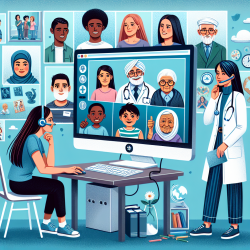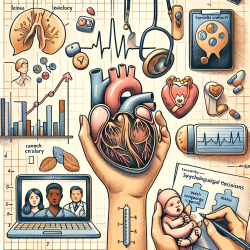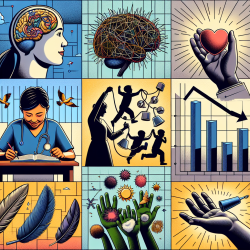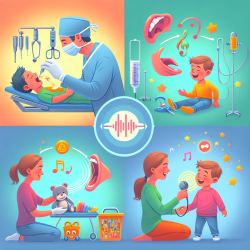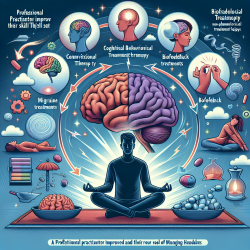Exploring Electro-Biology: A New Frontier in Speech Therapy
As practitioners in the field of speech-language pathology, we are constantly seeking innovative methods to enhance our therapeutic practices. One such promising avenue is the study of electro-biology, a field that has shown potential in influencing neurological processes. The research article titled "Contributions Towards the Study of Certain Phenomena, Which Have Been Recently Denominated Experiments in Electro-Biology" provides valuable insights that can be applied to our practice, particularly in online therapy services like those offered by TinyEYE.
Understanding Electro-Biology
Electro-biology involves the study of electrical phenomena in biological systems. This research, originally conducted in the mid-19th century, delves into how electrical stimulation can affect biological processes. For speech therapists, understanding these principles can open up new strategies for addressing speech and language disorders.
Practical Applications in Speech Therapy
Here are some ways in which electro-biology can be integrated into speech therapy practices:
- Neuroplasticity Enhancement: Electro-biology can potentially enhance neuroplasticity, the brain's ability to reorganize itself by forming new neural connections. This is crucial in speech therapy, where we aim to rewire neural pathways to improve speech and language skills.
- Improved Auditory Processing: Electrical stimulation may aid in improving auditory processing abilities, which are essential for language comprehension and speech production.
- Motor Speech Disorders: For children with motor speech disorders, electro-biology techniques could help in refining motor control and coordination required for speech.
Encouraging Further Research
While the potential of electro-biology is exciting, it is imperative that practitioners engage in further research to validate these applications. By conducting controlled studies and gathering empirical data, we can better understand the efficacy of electro-biology in speech therapy. Collaboration with neuroscientists and other specialists can also provide deeper insights into this field.
Conclusion
Integrating electro-biology into speech therapy practices offers a promising frontier for enhancing therapeutic outcomes. As we continue to innovate and explore new methodologies, it is crucial to remain grounded in data-driven decisions. Practitioners are encouraged to delve deeper into this research and consider how these findings can be adapted to their therapeutic approaches.
To read the original research paper, please follow this link: Contributions Towards the Study of Certain Phenomena, Which Have Been Recently Denominated Experiments in Electro-Biology.



